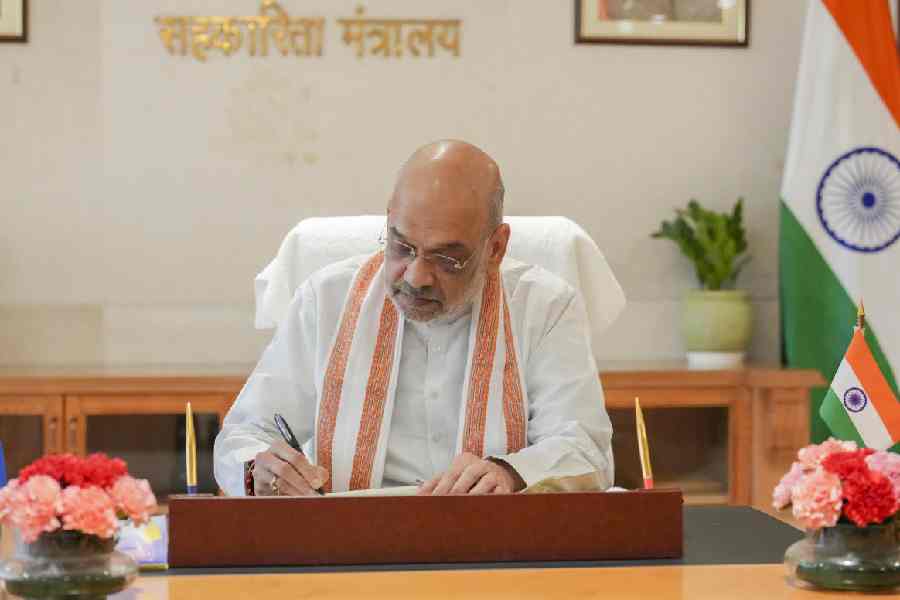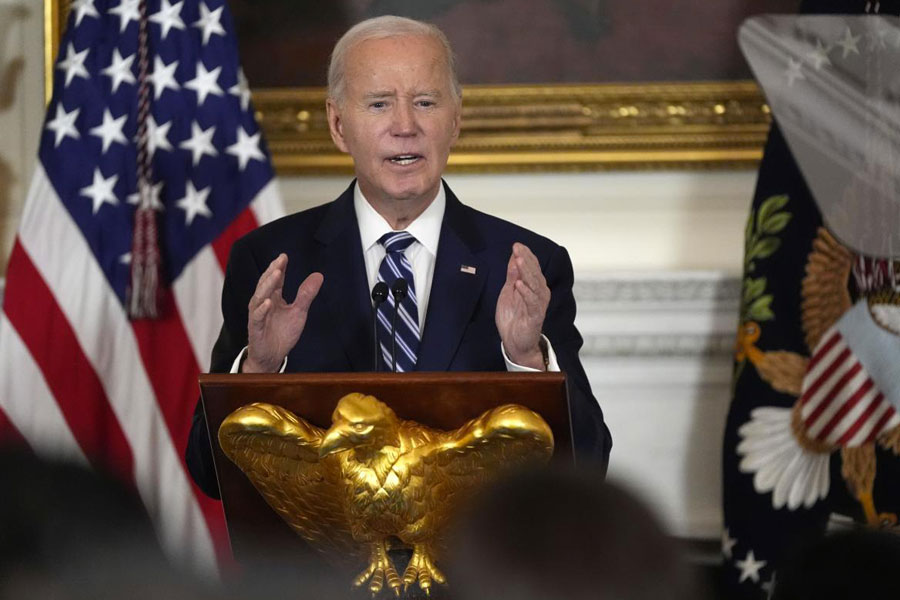Amit Shah remains firmly in control, it has been underscored without doubt in Prime Minister Narendra Modi's third government.
Despite feverish speculation over whether newly crucial allies Nitish Kumar and N. Chandrababu Naidu would extract their pound of flesh, Shah, 59, remains India's home minister and has also retained his other portfolio in the ministry of cooperation.
He took charge on Tuesday.
"Under the stewardship of PM Shri @narendramodi Ji, I reassumed charge of the Ministry of Home Affairs today. The MHA will remain committed to the security of the nation and its people, as it always has been. Modi 3.0 will take its efforts for India's security to the next level and build Bharat as a bulwark against terrorism, insurgency, and naxalism," he wrote on X.
In his fresh tenure as home minister, the immediate priority of Shah will be the implementation of the three newly enacted criminal laws -- Bharatiya Nyaya Sanhita 2023, Bharatiya Nagarik Suraksha Sanhita 2023 and Bharatiya Sakshya Adhiniyam 2023.
Aimed at reshaping the landscape of the country's criminal justice system, Shah brought the three laws last year aimed at modernising and replacing outdated British-era legislation.
These laws, scheduled to come into effect from July 1, are set to replace the Indian Penal Code, Code of Criminal Procedure and the Indian Evidence Act, marking a significant shift towards what the government calls a more efficient and effective legal framework.
Legal activists and critics of the government have pointed out that under the new laws, the number of days that a person can be detained without charge has been increased and silencing of protests would be easier with the vague and over-wide definitions of terrorism, or of endangering the sovereignty or unity of the country.
The laws have already been challenged in the Supreme Court, which rejected the petition saying the laws had not come into effect yet and that the petition was 'drafted in a cavalier manner'.
Amit Shah: No stranger to controversy
Amit Shah is no stranger to introducing controversial laws.
As Union home minister in the second Modi government in 2019, he had played a pivotal role in shaping key policies, including the abrogation of Article 370 and the enactment of the Citizenship Amendment Act (CAA).
Known as the second-most influential figure in the country's political lamdscape after Prime Minister Narendra Modi and a person dedicated to the saffron ideology, Shah rose as the BJP's master organiser when its alliance secured 73 seats from Uttar Pradesh in 2014 under his leadership as the party's general secretary.
Recognised for his political acumen and strategic prowess, Shah has played a pivotal role in the phenomenal growth of the saffron party.
A profile of him in The Guardian earlier this year was headlined: ‘He likes scaring people’: how Modi’s right-hand man, Amit Shah, runs India.
In this election, Shah was elected from Gandhinagar constituency in Gujarat in the Lok Sabha election after defeating his nearest rival by a margin of 7.44 lakh votes.










